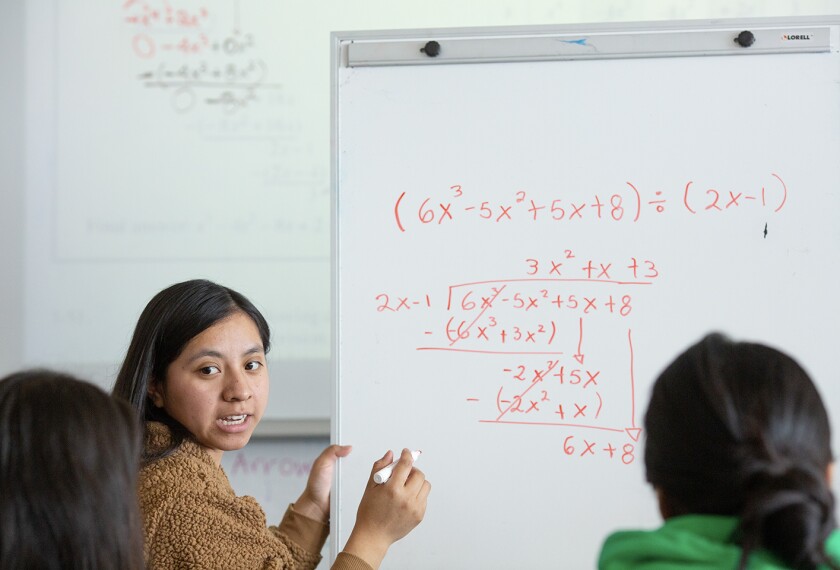Americans’ opinions about the quality of public education in the United States continue to decline, according to a Gallup poll released Feb. 5.
The percentage of adults who report feeling dissatisfied about public education has increased steadily from 62 percent to 73 percent between 2019 and 2025, according to Gallup’s annual “Mood of the Nation” survey. The percentage of adults who now feel satisfied with public education is the lowest since 2001, the report notes.
The report—which tracks Americans’ satisfaction across 31 aspects of U.S. society or policy such as the military, health care, and crime—found that public education ranked 29th among those 31 areas.
“Americans’ persistent low satisfaction with national conditions may be hard for the nation’s leaders to address; however, the rank order of concerns resulting from this poll offers [President] Trump and officials at all levels of government guidance on where the public might appreciate them focusing their efforts,” the report says.
The Gallup poll comes less than a week after news that U.S. students’ reading scores had plunged further on the test known as the nation’s report card. For both 4th and 8th grade, scores on the 2024 National Assessment of Educational Progress have shown a steady decline in that subject that started before school building closures during the pandemic.
That continuing slide was the case despite a big infusion of federal aid to schools during the Biden administration to stand up tutoring and other programs to help students catch up academically.
Precisely what is driving the findings is unclear. It could be related to the falling test scores, parents’ lingering dissatisfaction with months of remote and hybrid schooling that led to learning loss, or the negative discourse about race and gender and charges of indoctrination that have been leveled at teachers since 2020. The poll didn’t plumb why parents held their views.
It’s worth noting that when Gallup has asked Americans in other surveys about their own local public schools, their satisfaction historically has been much higher than their view of public education more generally.
The poll was based on telephone interviews conducted Jan. 2-15 of this year with a random sample of 1,005 adults, ages 18 and older, living in all 50 states and the District of Columbia.
Other findings from the Gallup poll:
- Majorities of Americans are generally satisfied with the nation’s military strength, the overall quality of life, the position of women, the opportunity for people to get ahead, and the acceptance of gay and lesbian people in the country.
- Americans are closely split on three other issues, with about as many dissatisfied as satisfied: the influence of organized religion, the nation’s security from terrorism, and the position of people who are from historically underserved communities.
- In addition to public education, more Americans are dissatisfied than satisfied with all other aspects measured, spanning policies on healthcare, foreign affairs, immigration, the environment, guns, race relations, energy, crime, taxes, abortion, and the economy, among other issues. The nation’s efforts to deal with poverty and homelessness garners the lowest satisfaction rating from Americans.
- More Americans are satisfied with the quality of medical care in the United States than with the availability of affordable healthcare. They are also more satisfied with the effect technology is having on society than with the size and influence of major corporations.





